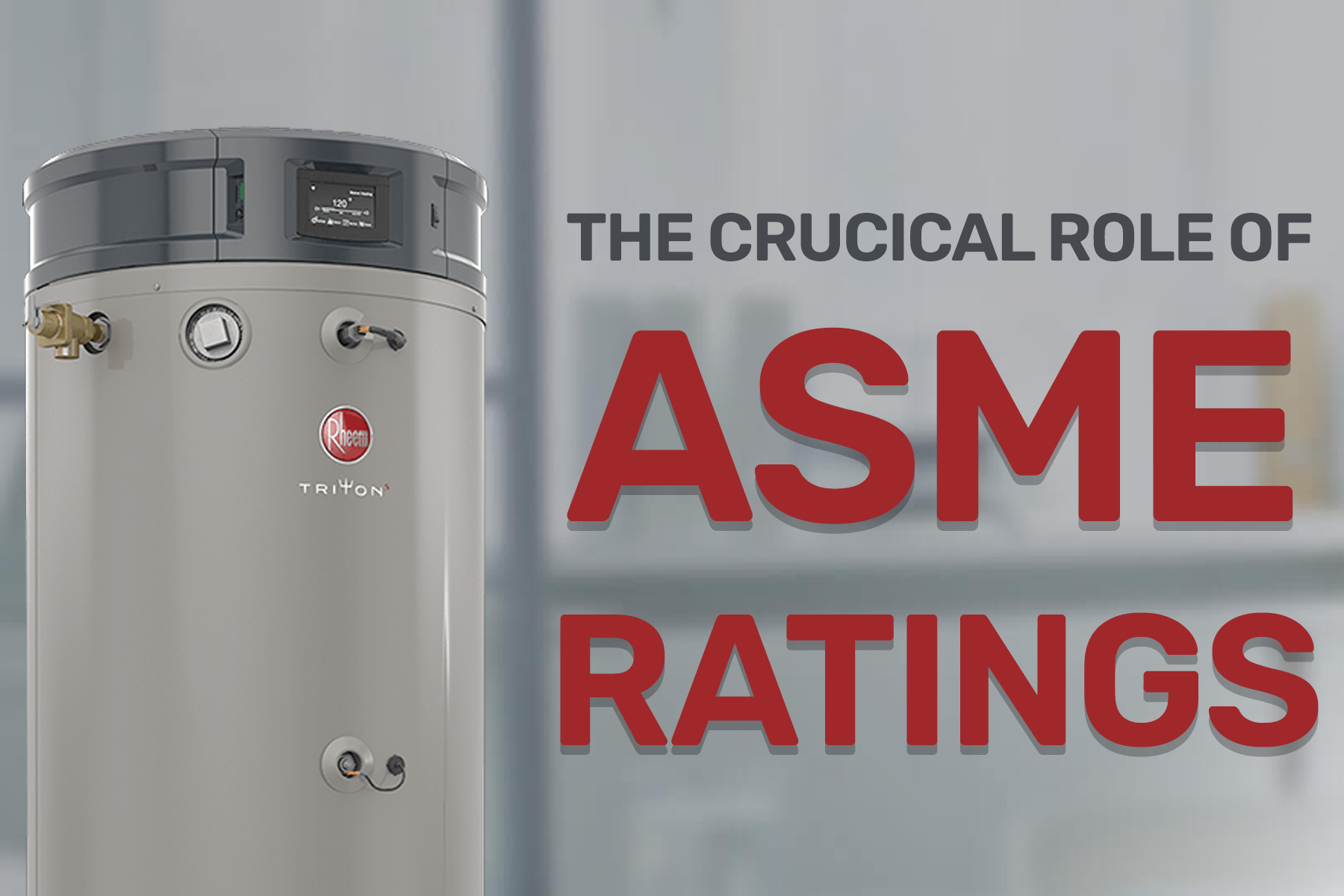
Navigating Commercial Water Heaters: The Crucial Role of ASME Ratings
| Noah Beson
In the realm of commercial water heaters, the American Society of Mechanical Engineers (ASME) ratings stand as a hallmark of safety, quality, and compliance. Understanding what ASME is, when it is required, and the distinctions between ASME-rated and non-rated water heaters is pivotal for businesses seeking reliable and efficient hot water solutions.
What is ASME?
The American Society of Mechanical Engineers (ASME) is a renowned organization that sets the standards for the design, fabrication, and inspection of various mechanical devices, including commercial water heaters. ASME certification is a seal of approval, signifying that a product has met stringent safety and quality standards.
When is ASME Required?
ASME certification becomes crucial when dealing with commercial applications where large volumes of hot water are required. While residential settings may not necessitate ASME-rated water heaters, businesses, industries, and institutions that demand a continuous and substantial supply of hot water benefit significantly from the safety and performance standards set by ASME.
Certain water heater tanks are governed by Section IV (HLW) of the Pressure Vessel Codes prepared by A.S.M.E Criteria for A.S.M.E construction, when and where required by law are:
Tanks should be crafted from steel that precisely adheres to A.S.M.E.'s specifications, including gauge and tensile strength. The welder must hold A.S.M.E. certification, and the welding rod must be certified to possess an equivalent tensile strength as the steel it is applied to. The conclusive hydrostatic pressure examination for each tank must be conducted with the supervision of an inspector from the Hartford Steam Boiler Insurance and Inspection Co. This ultimate pressure test involves completely filling the tank with water and maintaining a pressure of 150 PSI for a duration ranging from thirty to sixty minutes. Following a successful inspection, the National Board of Boiler and Pressure Vessel Inspectors assigns a unique number to the tank, which stays associated with the unit throughout its operational life.
States Where ASME is Required
The requirement for ASME certification can vary by state and local regulations. While some states may mandate ASME ratings for specific commercial applications, others might leave it as a recommended practice. As mentioned above in most instances water heaters under 200,000BTU are not required to be ASME rated. This is why we see a lot of water heaters rated at 199,900BTU. This is so that the water heater does not fall underneath the requirement to be ASME rated. However, it is imperative for businesses to consult local building codes and regulations to determine whether ASME certification is required for their specific application.
How to Know When a Water Heater is ASME Rated
If you know you'll be needing an ASME rated water heater is imperative to know whether or not a specific model has that rating. We carry Rheem products, and each of their water heaters add the letter "A" at the end of the model to signify that it has an ASME rating. For instance a Rheem G100-200 is not ASME rated, but a Rheem G100-200A is ASME rated. Most other brands such as A.O. Smith, Bradford White, State, and American follow a similar structure placing an "A" at the end of the model to signify this rating.
ASME vs. Non-ASME: What Sets Them Apart?
**1. Safety Assurance: One of the primary distinctions between ASME-rated and non-rated water heaters is the level of safety assurance. ASME-rated water heaters undergo rigorous testing to ensure they can withstand the demands of commercial and industrial settings. This includes scenarios where high volumes of hot water are essential, such as in hotels, hospitals, and manufacturing facilities.
**2. Quality Standards: ASME certification is synonymous with high-quality standards. ASME-rated water heaters are built to endure the challenges of continuous operation, contributing to their longevity and reliability. Non-ASME units may not undergo the same level of scrutiny, potentially leading to increased maintenance requirements and a shorter lifespan.
**3. Code Compliance: ASME certification often aligns with local codes and regulations governing commercial water heaters. Choosing an ASME-rated unit ensures compliance with these codes, minimizing legal risks and liabilities for businesses.
**4. Insurance Considerations: Some insurance providers may offer more favorable terms for businesses using ASME-rated equipment. The enhanced safety features and adherence to rigorous standards reduce the risk of failures, making these units more attractive from an insurance perspective.
Conclusion: Making Informed Choices for Hot Water Solutions
In the dynamic landscape of commercial operations, the choice between ASME-rated and non-rated water heaters is more than just a technicality—it's a decision that impacts safety, reliability, and compliance. As businesses seek to provide a continuous and dependable supply of hot water, understanding and prioritizing ASME ratings is an essential step toward ensuring the longevity and efficiency of their water heating systems. In a world where quality matters, ASME ratings on commercial water heaters stand as a testament to a commitment to excellence and safety.







